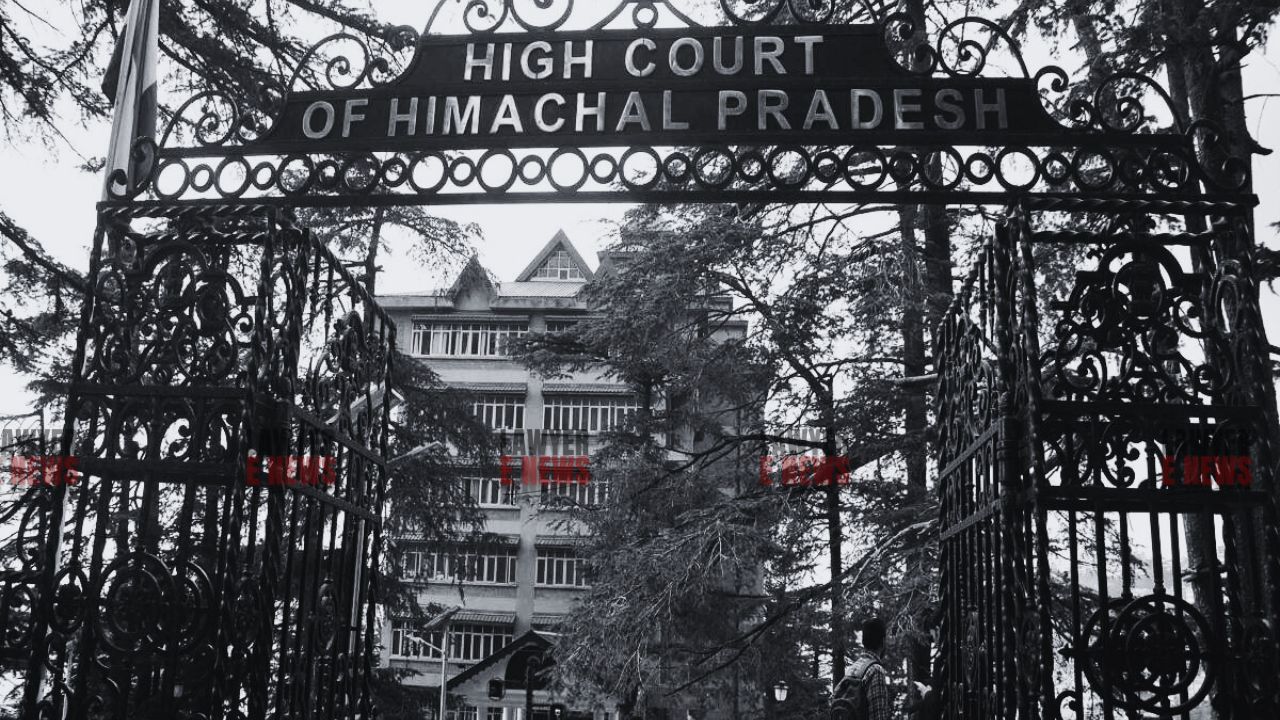-
by Admin
15 February 2026 5:35 AM



Directors cannot be prosecuted without the company being impleaded, reaffirms High Court, relying on Supreme Court precedent. In a significant judgment, the Himachal Pradesh High Court has quashed criminal proceedings against the directors of Tidal Laboratories Pvt. Ltd. in a case involving the manufacture of drugs deemed "not of standard quality." The petitioners sought to quash the complaint filed under the Drugs and Cosmetics Act, 1940, asserting that the company was not made a party to the case, a legal prerequisite for prosecuting the directors. The court, relying on settled legal principles, concluded that prosecuting the directors without impleading the company was untenable.
The case revolves around the inspection conducted on August 6, 2021, at Tidal Laboratories Pvt. Ltd.'s manufacturing facility in Bilaspur, Himachal Pradesh. During the inspection, the Drug Inspector collected samples of "Enzox Plus" tablets and "Octoxid" capsules. Upon testing, both drugs were declared "not of standard quality" by the Government Analyst on October 8, 2021. Subsequently, show cause notices were issued to the petitioners, who are directors of the company, followed by a complaint filed by the Drug Inspector.
The petitioners, Mr. Murgaiah Ravichandran and others, directors of the company, approached the High Court, seeking quashing of the criminal complaint initiated against them under Section 18(a)(i) punishable under Section 27(d) of the Drugs and Cosmetics Act. Their primary contention was that the company, which manufactured the drugs, had not been made a party to the proceedings, and no specific allegations were made regarding their role in the day-to-day management of the company.
The court, presided over by Justice Sandeep Sharma, observed that the core issue was whether a complaint against the directors of a company is maintainable under the Drugs and Cosmetics Act without the company being impleaded as an accused. The court relied heavily on established precedents from the Supreme Court, particularly Aneeta Hada v. Godfather Travels & Tours (P) Ltd., which unequivocally held that prosecution of a company is a "sine qua non" for prosecuting its directors.
Justice Sharma noted, "It is not understood how prosecution would prove the case against its Directors when the company itself has not been arraigned as a party." The court emphasized that the liability of directors under Section 34 of the Drugs and Cosmetics Act hinges on the company being found guilty, and without the company being prosecuted, the directors cannot be held vicariously liable.
The court's decision was anchored in the legal principle that a company is a juristic entity, and directors can only be prosecuted if the company itself is made a party to the proceedings. Referring to the Supreme Court's ruling in Aneeta Hada, Justice Sharma explained, “The prosecution of the company is mandatory, and the directors' liability arises only from the company’s liability. Without prosecuting the company, there can be no vicarious liability attributed to the directors.”
The court also referenced earlier judgments, including Ashish Mittal v. State of Himachal Pradesh, where it was held that the impleadment of the company is essential for the prosecution of its directors. Moreover, the petitioners had no specific involvement in the day-to-day operations of the company’s manufacturing process, further weakening the prosecution's case.
Justice Sharma stated, "For the offence, if any, committed by a company, the person responsible for the conduct of business is to be dealt with in accordance with law. But for doing so, the company is essentially required to be impleaded as an accused." The court further remarked, "In the case at hand, there is no allegation against the directors, and the company which allegedly manufactured the sub-standard drugs has not been made a party."
The Himachal Pradesh High Court’s ruling quashing the criminal proceedings against the directors of Tidal Laboratories Pvt. Ltd. is a reminder of the fundamental legal principle that individuals cannot be prosecuted for corporate offences unless the company itself is made a party to the proceedings. The decision reinforces the necessity of procedural compliance in criminal cases under corporate laws and could serve as an important precedent in similar cases.
Date of Decision: September 2, 2024
Mr. Murgaiah Ravichandran and Anr. v. State of Himachal Pradesh
